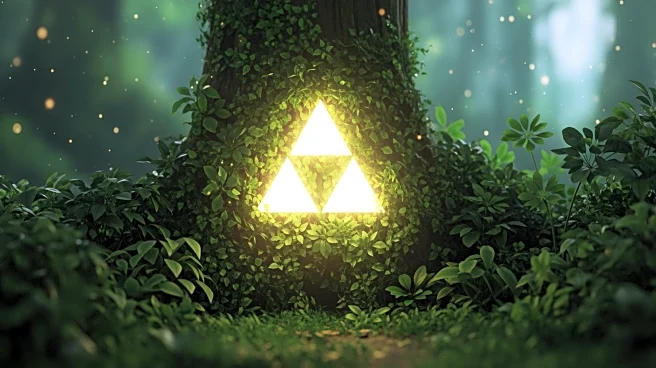What's Happening?
Nintendo has commenced filming for its live-action adaptation of The Legend of Zelda in New Zealand, with production expected to continue until April next year. The Film & Television Industry Alliance
has updated the project's status to 'in production,' with filming based in Wellington. The movie features young actors Bo Bragason and Benjamin Evan Ainsworth as Zelda and Link, respectively. The plot follows Link, a young warrior tasked with protecting the kingdom of Hyrule from the warlord Ganon, who seeks the Triforce, an ancient relic granting limitless power. The film is produced by Shigeru Miyamoto and Avi Arad, with Sony Pictures handling distribution and co-financing.
Why It's Important?
The live-action adaptation of The Legend of Zelda marks a significant expansion of Nintendo's film production efforts, following the success of the Super Mario Movie. This project underscores Nintendo's commitment to leveraging its popular franchises in the film industry, potentially increasing its cultural footprint and revenue streams. The choice of New Zealand as a filming location may enhance the movie's visual appeal, drawing parallels to the iconic landscapes seen in The Lord of the Rings trilogy. The film's success could influence future adaptations of video game franchises, impacting both the entertainment industry and fan communities.
What's Next?
The Legend of Zelda movie is set to release on May 7, 2027, with Nintendo planning a 'consistent release cadence' for video game movies in the coming years. As filming progresses, fans can expect announcements regarding additional cast members and further plot details. The anticipation surrounding the casting of Ganon, with speculation about Jack Black taking the role, highlights the movie's potential to attract high-profile talent. The film's development will be closely watched by industry stakeholders, as it may set a precedent for future video game adaptations.
Beyond the Headlines
The adaptation of The Legend of Zelda into a live-action film raises questions about the balance between staying true to the source material and innovating for cinematic appeal. Director Wes Ball's emphasis on creating a 'grounded' and 'real' movie suggests a departure from purely CGI-driven productions, potentially setting a new standard for video game films. This approach may influence how other franchises are adapted, encouraging filmmakers to explore diverse storytelling techniques and production styles.








